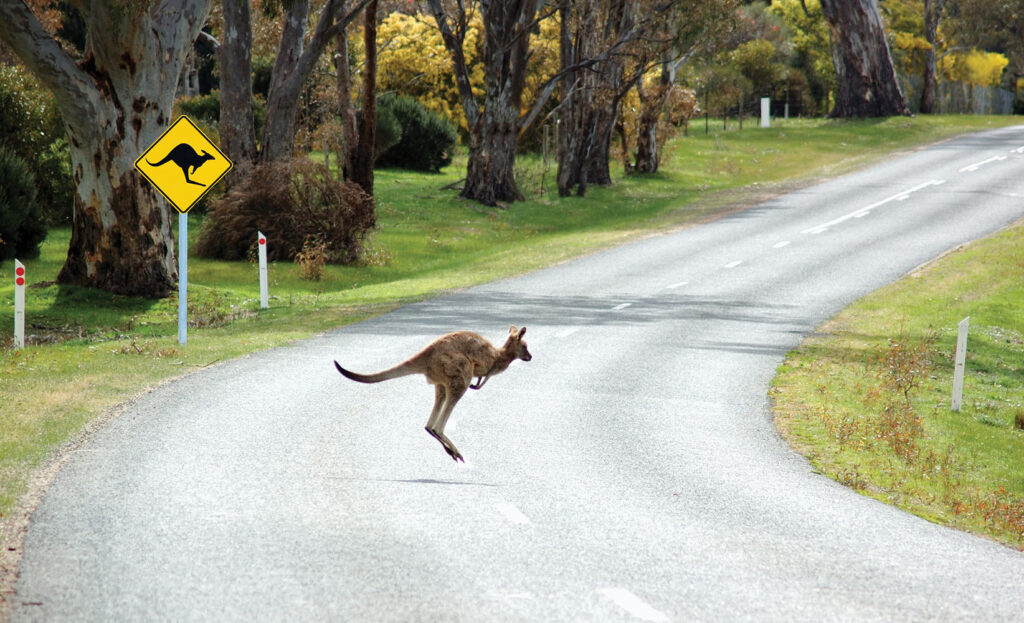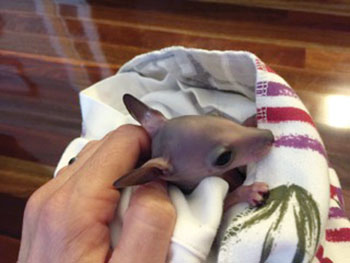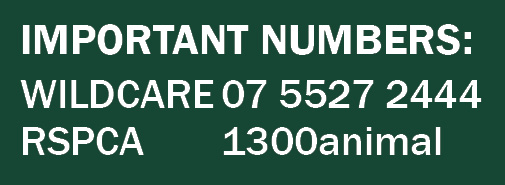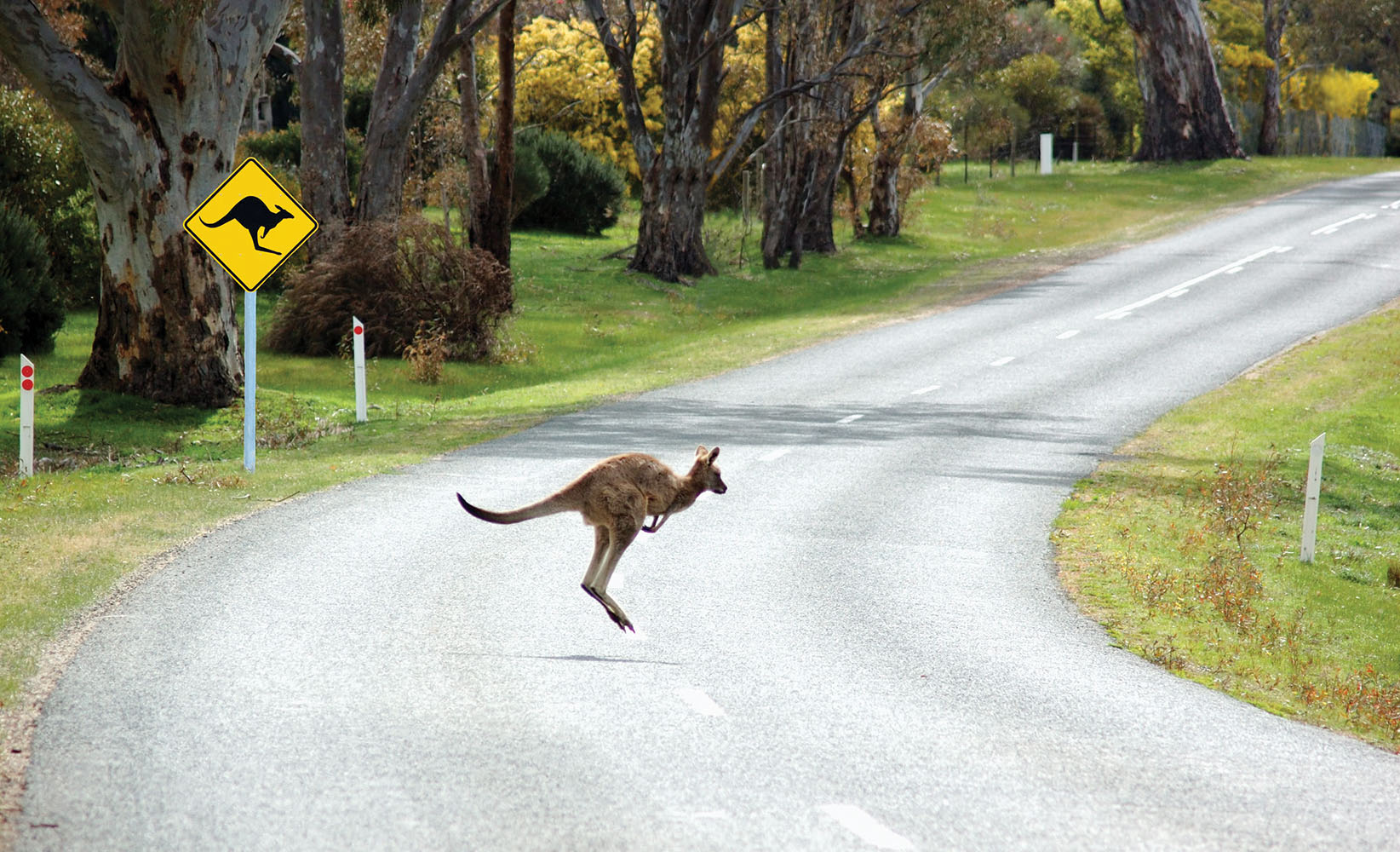
With the onset of Winter upon us and the shorter days, we see a huge increase in the amount of Wildlife killed and injured on our roads as our commute times and peak traffic times coincide with the emergence of Wildlife to forage and graze.
Our nocturnal animals are all out earlier feeding and this regularly sees them in the road corridor or crossing it. The result is often tragic.
We all know how hard it is to avoid these animals. If you do accidently hit one, please stop and check it. Our Marsupials such as Possums, Bandicoots, Kangaroos and Koalas all have a pouch that may have a baby inside. We often find that pouch young survive the impact but can be easily overlooked unless we check the pouch.

If a baby is still in the pouch and attached to a teat, its really important the baby is not pulled off it. Young ones are permanently attached to the teat until they are old enough to move around and find it themselves – and pulling them off can cause terrible damage to their jaw and head. Sometimes it may even cause a brain bleed which leads to death days later.
If you find a baby in a pouch – often its easier to take the mum complete to a carer if she is dead and let a trained carer remove the baby from the pouch. Please note – this all assumes that mum is dead so do not try that with an animal that is still alive. If you need to remove the baby, after making sure mum is dead, cut the teat, leaving it in the joeys mouth and use a safety pin to secure the teat inside a pillow case or pouch and give a wildlife group a call.
Please keep them warm until help arrives – down your shirt works great!
Recently the RACQ had an article on the cost of a collision with Wildlife like a kangaroo leads to an average repair bill of $5,000. So, another reason for us all to keep a keen look out at dawn and dusk as our days get shorter and we find ourselves sharing the road with our Wildlife.
Remember, to care for wildlife, you need specialised training and a permit. Wildcare members are trained free of charge and provided with mentorship.
Please Remember – if you find an injured native animal of any type – place in a covered box in a quiet area and do not give food or water and then call Wildcare or RSPCA for help. If a snake or bat – call for assistance and do not try to capture or handle yourself.
For more information look up: Wildcare.org.au

By Sherryn Fraser
(Qualified Vet Nurse)
Registered Wildlife Rescuer &
Rehabilitator – Wildcare.org.au
